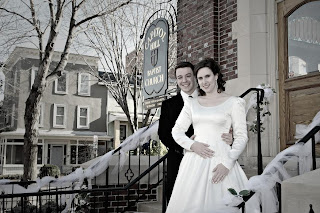When to read?
 As an English major in college, I had numerous opportunities to consider what to read, how to read, and why read. But it wasn't until I began teaching that I truly encountered the question of when to read. In other words, at what age should a child encounter certain books? And spinning off of that primary question is the debate over having students (usually elementary age) read "children's versions" or "abridged versions" of classics.
As an English major in college, I had numerous opportunities to consider what to read, how to read, and why read. But it wasn't until I began teaching that I truly encountered the question of when to read. In other words, at what age should a child encounter certain books? And spinning off of that primary question is the debate over having students (usually elementary age) read "children's versions" or "abridged versions" of classics.Those in favor of handing kids these books argue that the stories are entertaining and can be enjoyed by younger students, though obviously the kid isn't able to handle the real thing. Why not? Well, it might be that perhaps the vocabulary, writing style, or form is over their heads. Or perhaps the book contains some elements that aren't suitable for younger students. Or perhaps this story will help prepare the child to later encounter the work in full. And so we have "children's versions" of just about everything: Homer for kids, Virgil for kids, Shakespeare for kids, and abridged versions of works by Austen, Dumas, Dickens, Twain.
And I can see the point that these people are arguing for. Somewhat. I'm not necessarily wholly opposed to a student's reading Black Ships before Troy as long as that child encounters The Iliad later on. And I can see the advantage in a child's grasping some of the stories of mythology and Shakespeare at a young age and then reading the actual works later. But I think this list of works that the child needs to somehow be "prepared for" is actually rather small.
What I dislike intensely about this viewpoint is the assumption that a child "needs" to read these books at a young age and that there is benefit from doing so. Why does a fifth or sixth grader need to read an abridged version of Pride & Prejudice? Why can't she wait until she's in the eighth or ninth grade (or even later) and then just read the real thing? Why read a "children's version" of A Tale of Two Cities or Moby Dick or Huckleberry Finn? Wait a few short years, and, wow, the kid can read the real thing. I just don't get it. Why isn't the student using that time to read more age-appropriate books? Why must we rush them into these books that would be better read at an older age?
The other disagreement I have with this view concerns the nature of a work of literature. A book is much more than the plot it contains. And just because a student has read a story about a man whose father has been murdered and who is now obsessed with what action he should take against his mother and uncle doesn't mean that the student has read Shakespeare. He has read someone's retelling of Shakespeare, and it's not the same thing. I also consider it somewhat presumptuous of publishers to cut portions of a work and then have the audacity to use the same title and slap the author's name on the cover. You've just destroyed a coherant piece of writing. This is also why I don't like "cleaned up" versions of movies that cut out sections of a film. Either watch the movie or don't watch the movie. Either read the book or don't read the book. But don't take out huge chunks of a work and then claim that you still have the same work. If a child can't handle the content of a work, then just wait and let the child read it later. By removing content (for whatever reason), we destroy some of the essence of the story. I think these same concerns apply to the reading of Scripture (which, I suppose, is another post all together).
So now that I've ranted, what are your thoughts on the matter? Am I being too picky? Or do you have any similar concerns?


1 Comments:
I must admit I haven't given as much thought to this issue as you obviously have. I think though, I would tend to agree with you. On a slightly different part of the issue, I don't like how these "easier" versions encourage lazy readers. I'm thinking of my 8th graders, many of whom will want to read only a modern translation of Shakespeare rather than try reading his original work.
I'll stop my rant before it goes any further. Thanks for the thought-provoking post.
Post a Comment
<< Home